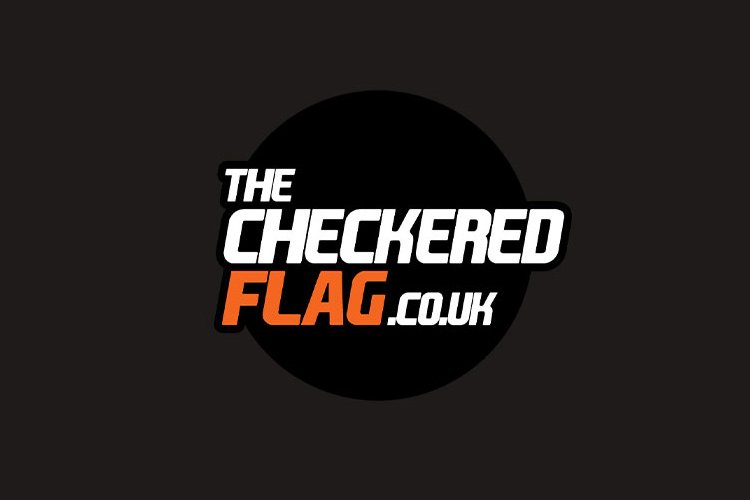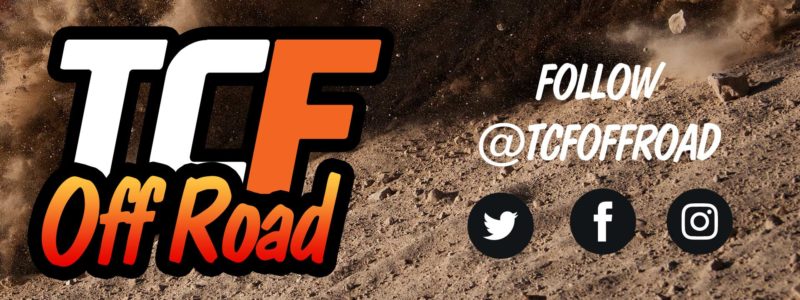Motorsports Racing News & Blog Articles
Mixed feelings, uncertainty surround Dakar 2023 plans for KAMAZ, MAZ
With the 2023 Dakar Rally five months away but a resolution to the Russian invasion of Ukraine nowhere in sight, teams from Russia and ally Belarus hoping to enter the rally raid are stuck with the predicament of not knowing whether they will be allowed to take part. In separate interviews with Russian sports publication Championship, KAMAZ-master‘s Dmitry Sotnikov and Eduard Nikolaev and MAZ-SPORTauto‘s Sergey Vyazovich discussed their Truck outfits’ future plans including their Dakar fates and how they have adjusted their operations since the invasion began in February. Both teams’ parent companies KAMAZ (Kama Automobile Plant) and MAZ (Minsk Automobile Plant) are respectively owned by the Russian and Belarusian governments and have been subject to multiple sanctions.
KAMAZ-master is a nineteen-time Dakar Truck winner who won the class for the sixth straight year in January and recently claimed the Silk Way Rally overall with Sotnikov. While it is not known if the team will be allowed at Dakar, Nikolaev proclaimed they will proceed with their programme as if they were gearing up for the event, such as hosting a training camp after finishing the Russian Rally-Raid Championship.
“Yes, the situation is not easy now, but the Dakar is still next year,” stated Nikolaev. “We were still running the Silk Road and testing new items with an eye on the Dakar, and even if suddenly we do not have it, we will still go to the training camp and continue to prepare so that when everything is restored—God willing, it will happen faster—we are ready. We have to be in shape, both technically and ourselves, in order to immediately join the race and show a decent result.”
Due to global sanctions and many sponsors including Red Bull withdrawing, KAMAZ-master has been more dependent on domestic production for parts and funding. State-owned energy company Gazprom took Red Bull’s place as primary sponsor and is collaborating with KAMAZ to new trucks such as a gas/diesel KAMAZ 43509 piloted by Alexander Kupriyanov at the Silk Way; more alternative fuel trucks using sources like hydrogen are also in the works, as part of the Dakar Rally’s goal of exclusively having zero-emissions vehicles by 2030. Since such a project requires years of development, the team has mostly continued with their traditional internal combustion trucks. Of course, the international situation means even this process has challenges: components like suspension springs can be manufactured locally in Naberezhnye Chelny, but those made from rubber are harder to come by.
“We try to do many parts ourselves, but there is still something that we have not covered: rubber-technical products, for example, cuffs, oil seals,” Sotnikov elucidated. “For our next trips, we will try new suppliers, plus we are supported by fuel partners, but we are actively looking for Russian manufacturers who are ready for special orders.”
 Credit: MAZ-sportauto
Credit: MAZ-sportautoMAZ-SPORTauto was barred from competing at the 2022 Dakar Rally as European sanctions imposed on Minsk Automobile Plant resulted in their Dakar-bound equipment being intercepted by French customs and sent back to Belarus. The team’s entry fee was also not reimbursed.
“The situation is on pause, and it’s not about whether the money was returned or not returned—which, by the way, it was not—but that there is no dialogue,” said Vyazovich, who finished third in the Silk Way Rally’s Truck category. “They just don’t want to talk to us. If there is a conversation, it is an unofficial one, in which the organisers of the race say that they are glad to see us at the Dakar. But for all obvious reasons, the case does not reach official negotiations and official correspondence. We just don’t get answered.
“But no matter how the world political community treats us, the entire motorsport world is watching the battle between MAZ-SPORTauto and KAMAZ-master. They wanted to see this battle on the Dakar, but in the end, they will watch it on the Silk Road. We know this because we receive a lot of private messages with words of support from athletes who cannot publicly express this but are watching the races and waiting for our return.”
Like KAMAZ, MAZ has turned to national manufacturing for supplies and parts, while also receiving help from some Russian and Chinese firms. Vyazovich described the matter as “an inevitable development of events that can affect the technical level of the team both in a negative and in a positive way. We’re going to have to go through it, and maybe we’ll even benefit from it. Simply because, in my opinion, things are not conducted this way, when everything is mixed up in one heap.”
Despite being in the same boat, KAMAZ was not going to lend too much help to a rival team.
“As far as I heard, they worked through Russia, but now our country is closed to many suppliers,” commented Sotnikov. “They’re looking too, and I don’t know how they’re coping. Out of cooperation, they once asked us something about shock absorbers. We have our own assembly, but we cannot give our competitors our springs; they will learn how everything works, understand what settings they use, and such information is sometimes key. So on the shock absorbers, they had to look for another solution, and on other issues they did not contact us.”
While KAMAZ’s post-Russian Rally-Raid Championship itinerary is still structured as if they will race at Dakar, Vyazovich offered a simpler view on MAZ’s winter plans: “We’ll see. Six months is a long time, and perhaps something will change in people’s heads and our teams, both MAZ and KAMAZ, will get to Dakar 2023. If not, then our morale and the development of our technology will not be affected. We already have such experience.”
MAZ was invited to the Africa Eco Race (scheduled for 15–30 October) shortly after being kicked out of the 2022 Dakar Rally, though Vyazovich pointed out logistical concerns complicate a potential entry.
“The equipment is transported by sea, and all these transports, as a rule, are European. They are also insured by European companies who refuse to accept cargo from an enterprise that is under European sanctions,” he explained. “All our equipment belongs to the Minsk Automobile Plant, and this presents difficulties for the carrier.
“Personally, I would not dare to send trucks in such a situation, because it is not clear what is in the minds of people through whose territories the equipment will pass. If the trucks are suddenly under arrest, then this, to put it mildly, is an unacceptable scenario for us. It’s easier to avoid unnecessary risk and not take part in activities that could lead to the loss of costly modern technology with solutions that we wouldn’t want to disclose at all. It’s not worth it.”
 Credit: MAZ-SPORTauto
Credit: MAZ-SPORTautoWhether or not Russian and Belarusian competitors could take part in Dakar weighs on multiple parties, including race overseer Amaury Sport Organisation. Vyazovich claimed the ASO, while communicating with his team during their travel to the 2022 Rally, informed Polish and French authorities of their movement which resulted in them being blocked from departing via ship, though he also asserted the ASO’s actions were due to political pressure and not their own accord.
While the FIA, who co-sanctions the Dakar Rally through the World Rally-Raid Championship, stated teams from those countries could race under neutral flags, Vyazovich was insistent on keeping his team’s Belarusian nationality. Under the FIA’s post-invasion policy, Russians and Belarusians must acknowledge the sanctioning body’s condemnation of the invasion, agree to “not display any Russian/Belarusian national symbols, colours, or flags publicly or via social media” as well as both countries’ names and their motoring authorities (the Russian Automobile Federation and Fédération de l’Automobile de Belarus), and “will not express any support (direct or indirect) for the Russian and/or Belarusian activities in respect of Ukraine.” Russian FIA members were already being represented by the RAF after the Court of Arbitration for Sport banned using the nation’s flag following the Olympic doping scandal.
Some Russian/Belarusian teams and drivers in international competition rejected the FIA’s ruling and withdrew from their respective championships, such as the World Endurance Championship’s G-Drive Racing and Daniil Kvyat along with Formula 3’s SMP Racing (SMP driver Alexander Smolyar agreed to the FIA’s terms, switched teams, and currently races in F3 with the FIA as his “nationality”). Sergei Kariakin, whose SNAG Racing outfit won the Silk Way T3 class with Nikita Mazepin (who lost his Formula One ride and was sanctioned by the European Union after the invasion), showed optimism about competing at Dakar 2023 but was noncommittal when asked if he would do so with a neutral banner.
“Sports have always united everyone, including irreconcilable enemies,” Vyazovich observed. “I personally do not consider athletes of any countries as enemies, and I am only for healthy competition. The general trend that has developed in the world in relation to athletes from Belarus and Russia, I believe, is unacceptable and indicates a low level of social development of people who make such decisions.
“It was hard to miss the Dakar the first time, and now we have mentally experienced it and are not ready to accept unacceptable conditions for us to participate in the race. It is clear that we are a factory team and my decision is not final, but personally my opinion is, as a person and not the head of MAZ-SPORTauto, the possibility of speaking without national flags and mentioning the plant is humiliating.”
Russia’s invasion of Ukraine is now in its 156th day. The Federation Automobile D’Ukraine suspended all sanctioned racing activities in May, but will send a delegation to the FIA Motorsport Games in October.
Copyright
© The Checkered Flag

 Follow @tcfoffroad on:
Follow @tcfoffroad on: